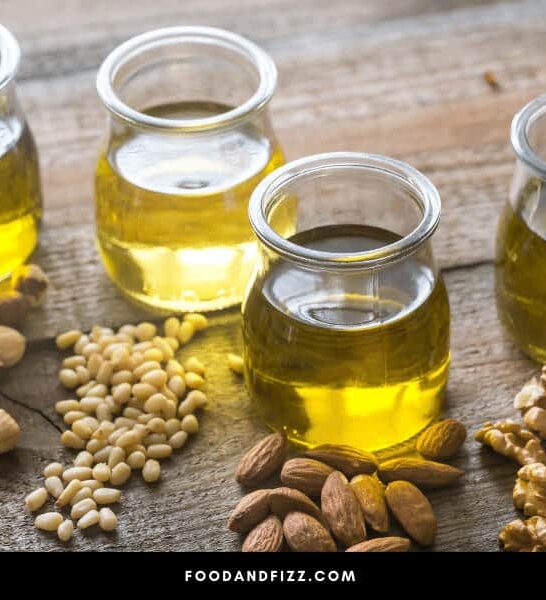Suppose you open a newly-bought bottle of olive oil that you found at an amazing price on sale at your nearest store. And as you drizzle it on your salad, it produces an odd smell. Would you continue using it? Obviously no!
Rancid fat, when consumed regularly, can affect your health adversely. Here, I will discuss whether fat goes bad and how to avoid rancidity.
Does Fat Go Bad?
Fat does go rancid. The best way to check if it has gone bad or is still safe to use is by smelling or tasting it. If it produces a disgusting smell and tastes horrible, the fat has gone rancid. However, you can preserve fats by reducing exposure to light, heat, and oxygen. You can store them for several weeks at room temperature and refrigerate or freeze them if you want to preserve them for more extended periods.
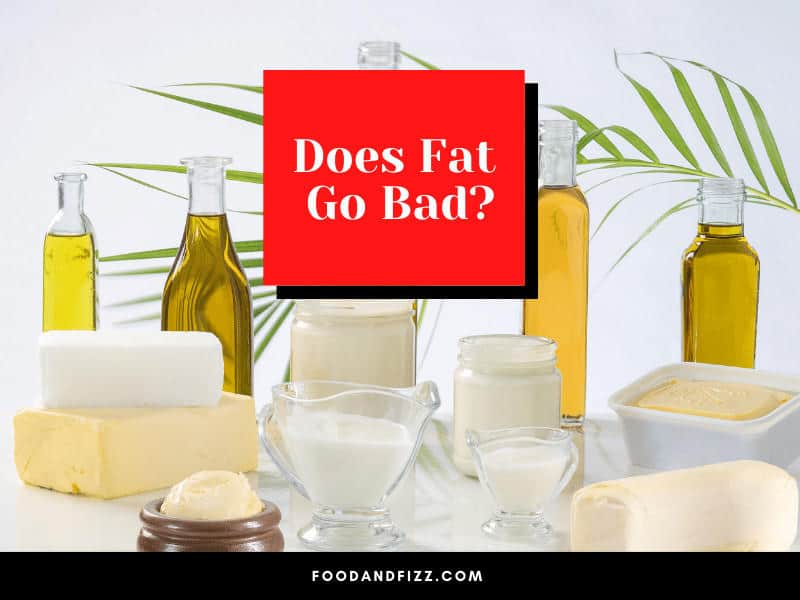
Can Fat Go Rancid?
Every cooking fat out there tastes delicious, excluding vegetable oils. Be it butter, bacon grease, olive oil, schmaltz, nut oils, or anything, they tend to make foods taste much better than they are. The more flavor it contains, the less you need to use it.
Some fats are so flavorful that they soften the strong smell and give that rich-tasting feeling that we all desire in our food.
However, the bad news is that fats are vulnerable to going bad. A rancid fat smells nauseating and tastes awful. Moreover, when used regularly, bad fat can make you prone to developing several health conditions as it forms harmful free radicals.
6 Tips to Prevent Fat from Going Bad
I have some good news for you! Although fats can go bad, there are a few ways you can prevent them from rancidity.
Reducing their exposure to heat, light, and oxygen can be a great way to preserve fats for as long as you desire. In short, store them in a refrigerator or freeze them.
At this point, you might be thinking of your grandmother storing bacon fat in a coffee can and placing it just next to the stove. But the thing is, she probably used it more than we all do.
Below I will share the six best tips to prevent fats from going bad.
1. Store Them In A Cool, Dark Place
Fats you will use within a few weeks can be stored at room temperature, preferably in an airtight container away from heat and light. However, if you want to preserve them for longer periods, I suggest keeping them in a refrigerator or freezer.
Dark glass containers rather than clear plastic ones work best for me for storing fats. This is because it’s hard to remove grease from plastics, and they are not even heat-proof. Therefore, fat inside them oxidizes and goes rancid quickly.
Ceramic and glass containers are great for storing fat. However, allow the item to cool a little before pouring it in. Or else it will shatter, especially when you have a cold container.
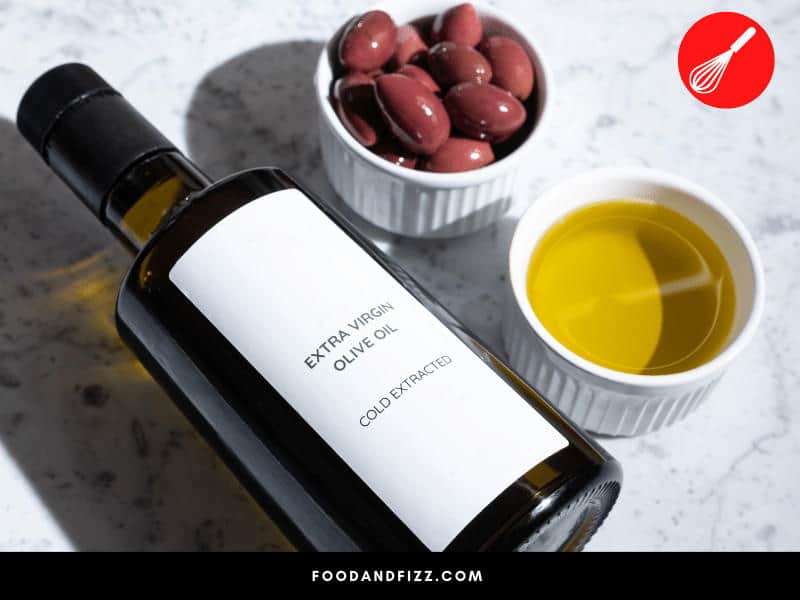
2. Buy Them In Smaller Quantities
I understand how tempting it is to buy large bottles of oil, however, it is best to purchase according to your need for the next 3 months. To extend the life of specialty oils such as walnut, sesame, or macadamia nut oil, I recommend keeping them in the fridge once opened.
3. Check The Date On The Packaging
I’m not only talking about the expiration date but also the time your fat has been opened. If you look in my pantry or refrigerator, you will see how it has labeled dates on all the items from the day I opened them. To quickly adapt this habit, I suggest keeping a marker in a convenient place.
Expiration causes spoiled food, but sometimes it is also stored in a heated environment which causes it to go bad much faster. Watch out for red flags! These may be in the form of foul odor, discoloration, or stickiness near the cap.
4. Be Careful With Oil-based Supplements
I have learned from my experience that it is best to buy fish oil from a refrigerated area. Also, keep it in your refrigerator even if it is not mentioned on the packaging.
It is also a good idea to periodically smell the oil in the capsule. Since it comes in the form of a capsule, you will never know if it smells bad.
5. Avoid Buying Bulk Food Bins
I would recommend not buying wheat germ, nuts, seeds, ground flaxseed, or nut flour from bulk food bins. The 3 signs of fats becoming rancid (light, oxygen, and heat) are already present. The products are already oxidizing and might go bad even before getting home.
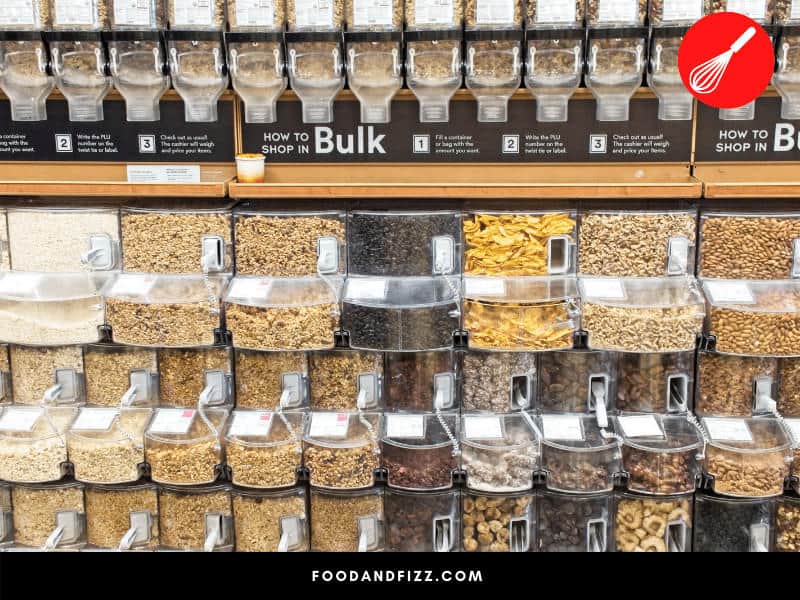
6. Get the Right Oil For Your Preferred Cooking Temperature
Smoke points vary among different oils. Therefore, they can only be heated up to a certain point before oxidization or degradation begins. It is best to research and opt for ones that best suit your cooking temperature.
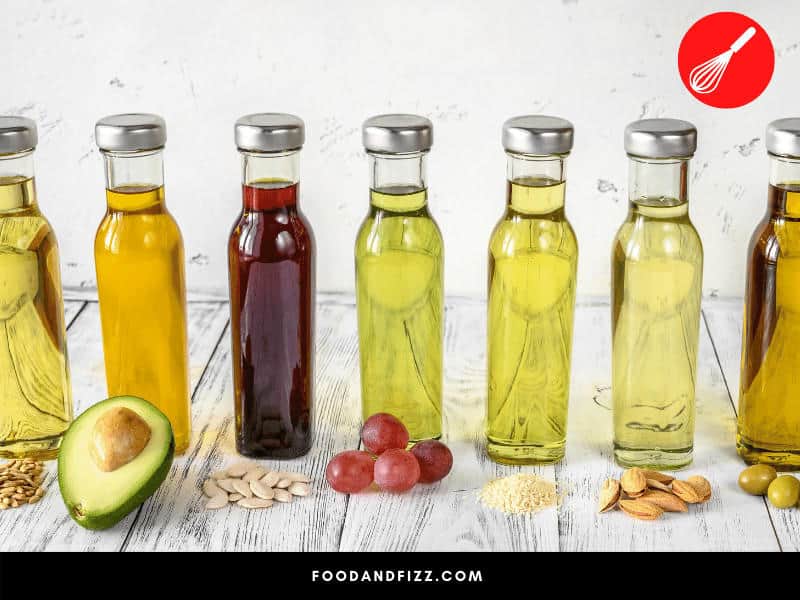
Effects of Rancid Fat on Your Health
I think the word ‘rancid’ should be enough to freak you out since it raises the thoughts of a musty, funky odor. As discussed earlier, fat goes rancid when exposed to light, oxygen, and heat for an extended period.
These elements break fats down into small particles known as fatty acids, resulting in rancidity. Thus, consuming rancid fat for extended periods can adversely affect your health. Even health-promoting fats become unhealthy when they go bad.
We need to avoid oxidation in our bodies as it can damage our cells, DNA, and protein. It can also speed up the process of aging and make you vulnerable to developing chronic diseases like cancer, heart condition, and more.
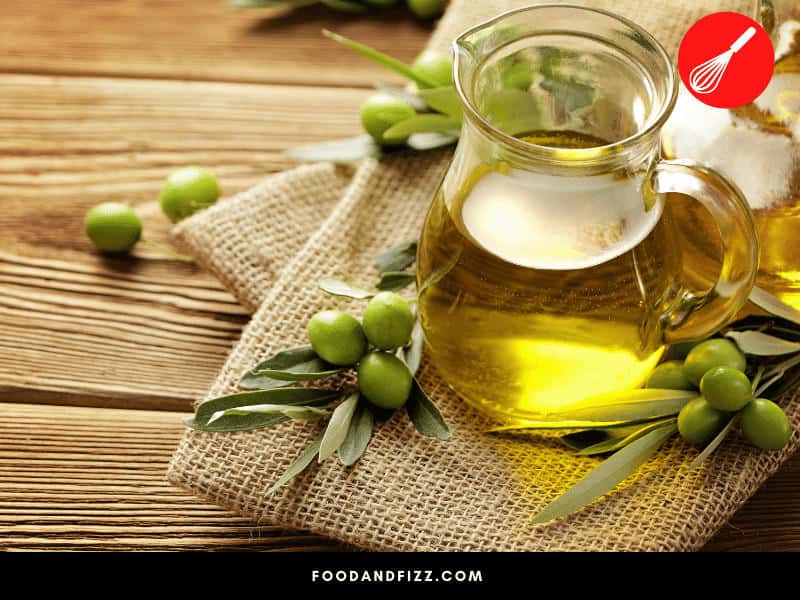
Frequently Asked Questions on Does Fat Go Bad?
What Foods Can Become Rancid?
All foods that contain fat are prone to rancidity. However, the most vulnerable foods include nuts, cooking oils, salad dressings, and seeds. Moreover, supplements having fats, like flaxseed or fish oil capsules and fat-soluble vitamin supplements such as Vitamin A, D E, and K) can also become rancid.
Does Rendered Fat Go Rancid?
The fat in pure form does not grow mold but rather goes rancid. Mold is a sign that it was not strained properly or it wasn’t rendered long enough.

